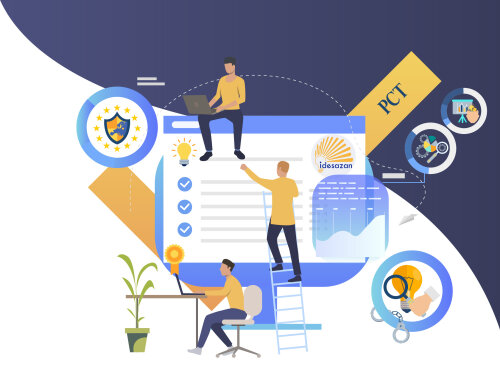Best Telecommunications and Broadcast Lawyers in Tehran
Share your needs with us, get contacted by law firms.
Free. Takes 2 min.
List of the best lawyers in Tehran, Iran
About Telecommunications and Broadcast Law in Tehran, Iran
Telecommunications and Broadcast Law in Tehran, Iran is a crucial sector governed by various regulations and policies, which ensure that services are delivered efficiently, equitably, and responsibly. In Tehran, as the capital city, these laws are pivotal to managing internet services, mobile networks, television, radio broadcasting, and other communication technologies. The laws are designed to oversee licensing, spectrum allocation, content regulation, and service provider obligations, ensuring they comply with national standards and international agreements.
Why You May Need a Lawyer
There are numerous situations where legal guidance is essential in telecommunications and broadcasting in Tehran:
- Navigating complex licensing processes for setting up radio or television stations.
- Compliance issues with content regulations and censorship laws.
- Disputes between service providers and consumers regarding service quality or contractual obligations.
- Legal challenges related to spectrum allocation and interference.
- Representation in negotiations or litigations against regulatory bodies.
- Handling telecom infrastructure agreements, such as tower placement and leasing contracts.
Local Laws Overview
The telecommunications and broadcasting sector in Tehran operates under a framework of stringent regulations:
- The Ministry of Information and Communications Technology (ICT) plays a significant role in policy-making and enforcement.
- The Iranian Communications Regulatory Authority supervises telecommunications services, ensuring compliance with national standards.
- The Press Law and other media-specific regulations govern content, focusing on ethics and cultural conformity.
- Licensing for broadcasting and telecom operations is mandatory, with specific criteria and processes for issuance.
- National security concerns heavily influence regulation and content monitoring.
Frequently Asked Questions
What does a telecommunications and broadcast lawyer do?
These lawyers help clients navigate legal frameworks, handle regulatory compliance, manage content licensing, and address disputes or legal challenges within the telecommunications and broadcast sector.
Who regulates telecommunications and broadcast services in Iran?
The Ministry of Information and Communications Technology and the Communications Regulatory Authority are primarily responsible for these sectors.
What is the process for obtaining a broadcasting license in Tehran?
Applicants must submit to a detailed process involving applications to the relevant authorities, meeting equipment and content standards, and possibly undergoing background checks.
Are there restrictions on content in Iranian broadcasts?
Yes, content must adhere to cultural, religious, and ethical standards outlined in local laws and regulations, including censorship guidelines.
How are disputes between consumers and service providers handled?
Disputes may be resolved through negotiation, mediation, or litigation, often with the oversight or involvement of regulatory authorities.
What are the consequences of violating telecommunications laws?
Consequences can include fines, revocation of licenses, and potential legal action depending on the severity of the infraction.
How do telecommunications laws in Iran affect foreign companies?
Foreign companies must navigate additional layers of regulatory scrutiny and may have specific requirements relating to investment limitations and partnerships with local entities.
Can individuals challenge censorship decisions in Tehran?
While challenging such decisions is possible, it is often complex and requires legal representation to navigate effectively.
What role does technology innovation play in current regulations?
Regulations are evolving with technology advancements, focusing on the challenges of digital communication, internet services, and emerging platforms.
How are telecommunications tariffs regulated?
Tariffs are subject to government oversight and approval to ensure they are fair and reflect normative economic conditions.
Additional Resources
For further assistance, individuals can reach out to the following entities:
- Ministry of Information and Communications Technology: Provides in-depth information on regulations and policies.
- Iranian Communications Regulatory Authority: Offers details on compliance and licensing requirements.
- Iran Chamber of Commerce: Can provide information on the commercial dynamics of the telecommunications industry.
Next Steps
If you are seeking legal assistance in telecommunications and broadcasting in Tehran:
- Evaluate your specific legal needs concerning the regulations and guidelines mentioned.
- Contact a legal professional specializing in telecommunications and broadcast law to understand your rights and obligations.
- Prepare all relevant documentation and evidence related to your case or query to facilitate a smooth consultation.
- Consider engaging with professional legal advisors who are familiar with the local regulatory scene and can offer tailored advice or representation.
Lawzana helps you find the best lawyers and law firms in Tehran through a curated and pre-screened list of qualified legal professionals. Our platform offers rankings and detailed profiles of attorneys and law firms, allowing you to compare based on practice areas, including Telecommunications and Broadcast, experience, and client feedback.
Each profile includes a description of the firm's areas of practice, client reviews, team members and partners, year of establishment, spoken languages, office locations, contact information, social media presence, and any published articles or resources. Most firms on our platform speak English and are experienced in both local and international legal matters.
Get a quote from top-rated law firms in Tehran, Iran — quickly, securely, and without unnecessary hassle.
Disclaimer:
The information provided on this page is for general informational purposes only and does not constitute legal advice. While we strive to ensure the accuracy and relevance of the content, legal information may change over time, and interpretations of the law can vary. You should always consult with a qualified legal professional for advice specific to your situation.
We disclaim all liability for actions taken or not taken based on the content of this page. If you believe any information is incorrect or outdated, please contact us, and we will review and update it where appropriate.








